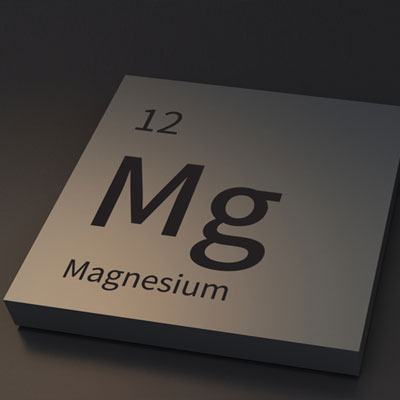What Are The Magnesium Benefits?

What Is Magnesium?
Magnesium, a mineral that is present on every continent, is crucial for keeping your bones and muscles healthy. It aids in straining our muscles to the limit and aids in muscle recovery after workouts. As a result, this crucial mineral should be included in your daily diet, particularly if you often exercise or have exhaustion that cannot be attributed to other factors.
Magnesium transforms into a positively charged ion (cation) in the body, where it is in charge of facilitating and controlling muscle action, together with sodium, potassium, and calcium. Every tissue in the body contains magnesium, making it the fourth most abundant cation in the body.

Magnesium Deficiency
Although many individuals do not get the appropriate amount of magnesium, signs of a deficit are uncommon in otherwise healthy persons. Hypomagnesemia is a medical term for magnesium deficiency. Magnesium insufficiency or deficiency may be brought on by excessive alcohol intake, a side effect of certain drugs, and several medical diseases, such as diabetes and gastrointestinal disorders. Deficiency is more prevalent in older people. Loss of appetite is one sign of magnesium insufficiency.
Do I Need to Take Supplements?
You can buy magnesium supplements, such as the best magnesium gummies, online, but it's ideal for getting any vitamin or mineral via food, as minerals function best when combined with other nutrients. Numerous minerals, phytonutrients, and vitamins combine their effects. This phrase indicates that eating them together has more health advantages than taking them apart. To achieve daily needs for magnesium, it is preferable to concentrate on eating a healthy, balanced diet, with supplements used as a backup but under medical supervision.
Magnesium Citrate Gummies Benefits
The body requires magnesium ions, which may be found in magnesium citrate. Each tissue in the body needs Magnesium Gummies Benefits to function. It collaborates with nucleic acids to provide energy and participates in more than 300 enzyme systems that control protein synthesis, nerve and muscle signaling, blood pressure, blood sugar levels, and other processes. Muscles and nerves need magnesium in order to operate correctly. Magnesium citrate plays a crucial part in bone formation by regulating the transit of calcium across cell membranes. Additionally, the body stores bones with Magnesium Citrate Gummies Benefits as a reserve.
The bones contain the majority of the magnesium in the body—about 60%; by controlling the conduction of the electrical impulses that regulate the timing of the heartbeat, magnesium aids in maintaining a regular heartbeat. Magnesium citrate is often used to stop irregular heartbeats. Atherosclerosis-related arterial stiffness is a risk factor that may lead to cardiovascular issues. By making the arterial walls more flexible, magnesium citrate helps to lower this risk. Magnesium prevents and treats headaches. A magnesium deficiency may affect neurotransmitters and blood vessel constriction, two factors associated by doctors with migraine. Migraines may lower magnesium levels in blood and tissues. Migraines may lower brain magnesium. According to Magnesium Chews Benefits, magnesium treatment may be helpful for avoiding migraines. According to scientists, ingesting 600 mg of magnesium citrate seems to be a secure and reliable preventative measure.
Magnesium Gummies Side Effects
As well as disclosing the use of antibiotics like Vibramycin (doxycycline), Achromycin V or Sumycin (tetracycline), Minocin (minocycline), Levaquin (levofloxacin), or Cipro, you should also disclose to your doctor the use of any other medications (ciprofloxacin). This is due to the possibility that magnesium citrate would reduce the efficacy of these drugs. Typically, magnesium citrate and these drugs should be taken two to three hours apart to help prevent this issue. To be certain, though, speak with a doctor or a pharmacist. As a laxative, this substance has the potential to induce diarrhea. After taking medication, it's crucial to drink enough fluids to avoid dehydration. It's crucial to drink 8 ounces of water after taking magnesium citrate. Because more water is drawn into the intestines, it replaces the fluid that is lost from the body. Magnesium Gummies Side Effects are not a lot.
How to Use and Prepare?
The container will provide guidelines and dose information for magnesium citrate. Adult constipation is often treated with a dose of 10 ounces. 6 The dose for kids aged 6 to 12 may be 5 ounces. Consult a doctor for constipation if the kid is less than six years old. You may get magnesium citrate, a laxative, over-the-counter at a pharmacy.
Are Magnesium Gummies Effective?
It might take anywhere between 30 minutes and six hours to have a bowel movement after taking magnesium citrate. It's crucial to take the medication precisely as directed by your doctor or on the label of the product. Given the candies' efficacy and their undeniably wonderful berry taste, we suggest you consider purchasing a few bottles, like NourishVita magnesium gummies, to keep in your medical cabinet.
How Can Magnesium Citrate Help You Lose Weight?
Two methods that magnesium citrate aids in weight loss are as follows:
Water loss in the stool will result in a decrease in total body weight.
If you are lacking, it could improve your energy output.
Who Should Utilize It?
If testing blood magnesium in patients with low levels, attempt to achieve an ideal level over 2.2. Patients who have muscular twitches, cramping, etc. Most individuals do not need to take magnesium supplements since they get more than enough magnesium through meals. Magnesium supplements might be harmful if used in excess.

How Can I Tell Whether I'm Getting Enough Magnesium?
Muscle cramps or twitches and an increase in weariness are two signs that someone may not be receiving enough magnesium. One should make an appointment with their doctor to get a blood test and check their magnesium levels if they believe they may be magnesium deficient. Lack of magnesium causes muscle weakness and weariness. If you used to kill your morning workout or had energy for an evening walk, this might be an indication that you need more magnesium (regardless of whether you felt like it). Magnesium deficiency causes muscular cramps. Increase your water consumption too.





